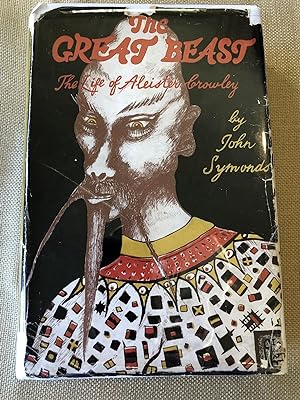Found in a paperback reprint ( 1952) of Rieu’s translation of The Odyssey is a typewritten carbon copy of a letter to the translator from John Symonds, the biographer of Aleister Crowley, dated 22nd September 1961. Alongside it is Rieu’s handwritten reply to Symonds from his home at Hurst Avenue in north London, dated six days later.
Such items are rare. Editors rarely reply to letters from readers. I once received a very long typed reply from the poet and writer on art, Edward Lucie- Smith, not long after his Penguin anthology of contemporary poetry came out. I can’t recall exactly what I objected to, but I think it was something to do with the fact that Lucie-Smith had had the audacity to include a comparatively young poet — Geoffrey Hill—while excluding a veteran of the Auden generation, Geoffrey Grigson. I must have made a cogent case because Lucie-Smith’s friendly reply was much longer than my original letter to him.

Symonds’ letter to Rieu turned on an objection, not to the quality of the translation, but to the character of Odysseus. Here is the letter in full:-
Dear Sir,
‘ Some years ago I bought your versions of THE ODYSSEY and THE ILIAD, and put them on a shelf beside my bed, intending one night to begin reading them, and thus fill a literary gap. And there they remained until this month when I took down THE ODYSSEY, removed the paper wrapper, felt the fine blue cloth binding, gazed at the clear print and began reading.
Splendid and immortal yarn! But what a barbarian Odysseus is. He is like a comic-strip superman of the Daily Mirror. And then I came to Book XXII which you describe in your introduction as ‘ the magnificent climax ‘. What is magnificent about it ? The cruelty of Odysseus appalled me. Merciless butcher, without charity! He won’t even spare the tearful women. The horror described on page 324 made me feel sick and I flung the book into the fireplace.
I shall apply myself, somewhat warily, to THE ILIAD.
Yours truly,
John Symonds.
Six days later Rieu responded with the following two-page reply:-
Dear Mr Symonds,
Thanks for your ( half) kind letter of Sept. 22nd. When you tell me that you threw my translation of the Odyssey into the fireplace, I could console myself only with the thought that we have had a mild September. Do, please, finish the Iliad before winter sets in.
Homer wrote about times when attempted usurpation of a throne was the most heinous crime of all. Personally, though I agree with you in thinking that p. 324 makes tough reading, I do not find it so revolting as Belsen, or even as the usual morning’s news.
You will have to steel yourself against a great deal in the Iliad—Book X is perhaps the worst. But when it comes to characters, I find it much harder to stomach the Greeks’ admiration of the brainless & brutal Achilles than their appreciation of Odysseus.
Yours sincerely,
E.V.Rieu
Today, an audience inured to violence at the cinema or on TV, would not find the scenes described by Rieu as particularly distressing, but perhaps Symonds had a squeamish side to him. The irony, perhaps, is that the biographer who was obliged to wade through all the debauchery and nastiness that characterised the career of Crowley, took exception to the cruelty and mercilessness of Odysseus, which after all, Rieu had a duty to lay bare.
Incidentally, Symonds seems to have been attracted to ‘ difficult ’ or controversial individuals. He also write lives of the fraudulent Madame Blavatsky (1959) and his friend, the Fascist memoirist Gerard Hamilton, once dubbed ‘ the wickedest man in Europe ‘.Symonds was also a friend of Dylan Thomas, Orwell and Stephen Spender, and once edited Lilliput magazine.
R.M. Healey
